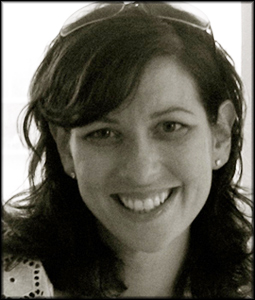
A broad range of theorists will round out the second season of the "Humanities on the Edge" cross-disciplinary speaker series at UNL, which kicks off Oct. 13.
The series brings speakers from across the humanities disciplines who are engaged in groundbreaking theoretical research. Organizers aim to bring to UNL the kind of cutting-edge humanities research that will define the future of critical thought.
At 5:30 p.m. Oct. 13, Sara Guyer, associate professor of English at University of Wisconsin, will speak on "'A Poet Is Born Not Made': John Clare's Grave and the Politics of Life." Based on a discussion of the changing reputation of the poet, who was born into a family of farmers and was later institutionalized due to his severe depression, Guyer's presentation will examine the social and political aspects of Romanticism from the perspective of the possibility of justice. Her talk will reflect on the definition of Romanticism from the perspective of the politics of life.
The 2011-12 season will include four lectures, all at the Sheldon Museum of Art. They will explore the concepts of biopower and biopolitics -- terms popularized by French philosopher Michel Foucault.
The terms refer to a sense that power and politics no longer work the way they did 50 years ago. Before, power was used in a negative sense to keep individuals in check. Biopower, meanwhile, works positively by inciting entire populations to find value in the very items that keep them disciplined.
"The more we desire the latest communication technologies like smart phones, for example, the more we are sutured into the system by virtue of the fact that we are capable of doing more," said Marco Abel, associate professor of English at UNL and a co-organizer of the series. "In other words, rather than preventing us from increasing our capacities to participate, to do things, to act, biopower works precisely by increasing them: the more we can do, the more can be done with us."
Because we now take pleasure in engaging in this new exertion of power, it has become increasingly difficult to imagine why one would want to resist to begin with, and how one could resist. It is this question of resistance that biopolitics tries to address and is one series speakers will explore.
Other talks in the series:
Thursday, Nov. 17, 5:30 p.m. -- Jodi Dean, professor of political sciences at Hobart and William Smith Colleges, "Communicative Capitalism: This Is What Democracy Looks Like," Dean’s talk draws from work she has done in new media and politics over the last decade and a half. Dean agrees with those who emphasize the democratic potential of participation in communicative networks, but argues that democracy has merged with capitalism such that the communicative acts we engage in reinforce the hold of capitalism.
Thursday, March 29, 5 p.m. -- Michael Hardt, professor of Italian studies and literature at Duke University and professor of political literature at the European Graduate School, "What to Do in a Crisis: a Biopolitical New Deal." Building on his work of the past decade with political philosopher Antonio Negri, Hardt will respond to their call, issued in the third part of their trilogy, "Commonwealth," for the need to reinvent the vocabulary of democracy as tools for intervening in the present. From a democratic-left perspective, one of the central concepts is that of the "New Deal." Hardt's talk will argue for the need of a new "New Deal"; however, for a "New Deal" to be effective today, it is in need to be re-imagined so that it will be responsive to the new form of power (biopower) characteristic of informational/finance capitalism.
Thursday, April 12, 5:30 p.m. -- Cesare Casarino, professor of cultural studies and comparative literature at the University of Minnesota, "Universalism of the Common." Starting from a retrospective and self-critical assessment of the collaborative reflections and undertakings of "In Praise of the Common" (a book he co-authored with Antonio Negri), Casarino's talk attempts to produce a concept of the "common," to evaluate the reasons for its present relevance and currency, as well as to posit its inescapable centrality for critical understanding of related concepts such as "capitalism," "biopolitics" and "communism" today.
For more details about the series, visit its Facebook page, http://go.unl.edu/6cs, or http://english.unl.edu/#hote.
- Jean Ortiz Jones, University Communications
More details at: http://go.unl.edu/hm3